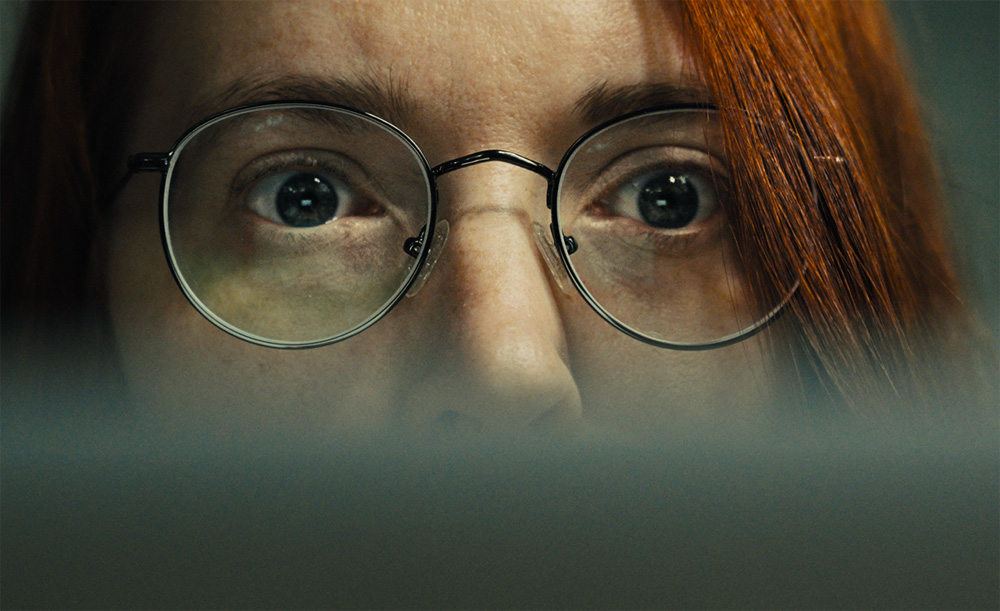Some heroes wear sweatpants to go by My Vingren, the modest, bespectacled star of “Hacking Hate,” subjecting herself to some of the most noxious YouTube videos as her hands busy themselves with origami. In her native Sweden, the image of an online crusader conjured for most people would be Lisbeth Salander, the tattooed and Mohawk-donning invention of native Stieg Larsson in “The Girl with the Dragon Tattoo,” but fittingly while the fictional character was a creature of the night, Vingren can be seen walking into the offices where Larsson himself spent his days as an investigative journalist for Expo, where she pitches an article on far-right influencers to the magazine’s current editor.
If Vingren notes that the online allure of nationalists has been tied to their understanding of internet language, appealing to young men who spend their days inhaling memes and in search of community, director Simon Klose knows that a little subversive humor will make it easier to plumb the unfathomable depths of the web, pitched as a cyber thriller if the Millennium Trilogy had a thoughtful computer geek to follow instead of badass punk. Filmed with the sleek, detached style that reminds of the screen adaptations of Larsson’s pageturners, “Hacking Hate” finds an engaging cinematic language for a story that largely exists virtually as Vingren comes up with a clever idea to infiltrate white nationalist groups, creating fake Facebook profiles for a family (all sourced from her own face with AI-created variations) that announces their nationalist pride with a hashtag on every post. When others online are eager to recruit, it’s not long before she receives an invite to join a group called the Nordic Federation where there are “tips on how to kill Black people” and other truly ugly content, but Vingren is there to find identifying details of the members amongst all the jokey anonymous avatars, honing in on “Strength38,” who in organizing activities online and off starts to look like the leader of the pack.
As perversely amusing as it is at one point that his whereabouts are tipped off by a review he left for a sushi restaurant, Vingren is able to make far more disturbing connections about Strength38, like the fact he may be working for a high-level defense subcontractor. While her fishing expedition-like investigation starts having real world implications, Klose appears at first like he’s reaching when the film breaks to put in a sideline of Vingren interviewing Anika Collier Novarelli, a lawyer who notably worked at Twitter during the Trump Administration and raised concerns internally about his violent rhetoric. But while it initially seems unnecessary to get a broader perspective when Vingren’s own efforts reveal plenty, the addition of Novarelli as an unheralded voice of reason working in the trenches as a parallel to Vingren eventually pays dividends when the film is equally intent on shining a light on conscientious objectors to what the internet has become as unmasking those in white power movements, making adversaries that feel futile to fight against with their cloak of anonymity and total shamelessness appear far more vulnerable.
“I’m not sure why I continue these jobs,” Vingren can be heard saying at one point in “Hacking Hate,” but the film allows one to see what she does even amidst all the filth that she has to sort through, compelled by a search for identity that extends well beyond mere individuals who leave crude comments on social media to what kind of culture we want based on the platforms we participate in.
“Hacking Hate” will screen again at Tribeca Festival on June 15th at noon at the Village East.



